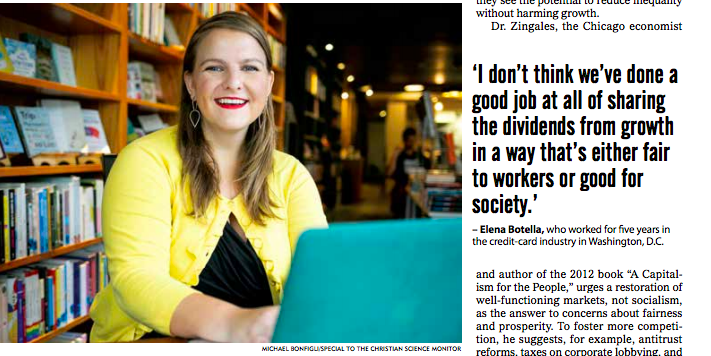You may have read in The Wall Street Journal or elsewhere about the trend of investors buying up single-family homes. For Slate I did a deep-dive by reviewing the financial records of the largest home buyers and uncovered an important point: investors like Invitation Homes (a spin-off of private equity company Blackstone) don’t buy homes at random. They’re really buying up smaller, more affordable housing in growing cities like my hometown of Charlotte: in other words, the specific homes that could have been wealth-building for the working class. An interesting point about many of the giant asset managers that are buy these houses is that they’re not just managing the…
-
-
What Hurricane Harvey can teach us about the failure of federal disaster policy
For Vice, I traveled to Houston to figure out why Hurricane Harvey caused the credit scores of homeowners in low-income neighborhoods to drop by an average of 24 points. Nearly two years after America’s biggest rain event, Houston’s wealthy neighborhoods have fully bounced back, while lower-income residents, systematically denied relief, were left poorer and sicker.
-
Who really saved the American city?
For Slate, I reviewed A.K. Sandoval-Strausz’ new book Barrio America. Just decades ago, American cities were in steep decline. Eighteen of the United States’ 25 largest cities were smaller in 1980 than they were in 1950. Grim urban landscapes faced depopulation, high crime rates, municipal bankruptcies, and economic decline. Conventional wisdom says the “creative class,” some combination of bohemian artists followed by white-collar yuppies, deserves credit for reversing the tide, making downtowns attractive, if expensive, places to live, a reversal that dampened the congestion, alienation, and environmental catastrophe of the suburbs. Not so fast, says Sandoval-Strausz.
-
Without systemic change, “corporate social responsibility” will always be window dressing.
On Monday, 181 chief executives of companies like JP Morgan, Apple, and Comcast took out a full-page-ad in the Wall Street Journal to announce that their group, the Business Roundtable, was redefining the “purpose of the corporation.” Their old philosophy said “corporations exist principally to serve their shareholders.” Now, the group says, they’ll do their part to create an “economy that allows each person to succeed” by balancing the interests of shareholders, customers, employees, and the community. This is good news on paper. Obviously, it’s better to have a bunch of high-minded CEOs than for our corporations to be run by people who don’t even pretend to care about their…
-
‘Faces of a new economy’ – my thoughts on the economic order
Mark Trumbull writing for the Christian Science Monitor profiled millenials rebelling against “an economic system that puts profits over fairness and equality.” The word ‘socialist’ means different things to different people. To some, countries like Sweden, Norway, or Germany are ‘socialist’ — many Western European countries have higher taxes, particularly on their wealthier citizens, to support free or very low-cost college and healthcare, and stronger guarantees of meeting the basic human needs of their citizens. At the same time, those countries all have vibrant market economies. While some industries in those countries like healthcare or education may be fully public or operated with greater government intervention, citizens can also start and…




